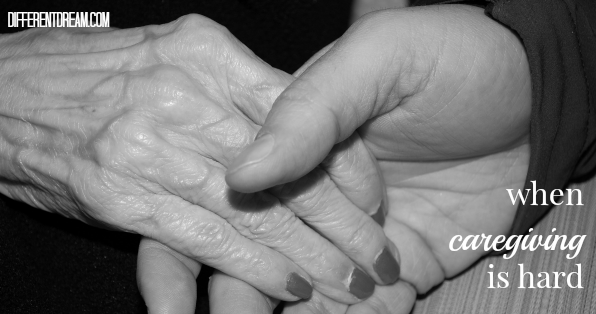Caregiving Is Hard Work

My formerly feisty, stubborn, and determined mother turned 90 during Labor Day weekend of 2018. The weekend was also the 10th anniversary of when we realized Mom was having memory problems. When she decided to move in with my brother and his family. When I took over her finances. When my sister from out of town began monthly treks to visit her. The weekend was also the tenth anniversary of when we learned caregiving is hard work.
The 10 years between 2008 and 2018 were not kind to Mom. Her world began shrinking. Her keen intelligence slowly failed. She moved into a memory care unit in 2015. She no longer cares about her appearance. She’s demanding and increasingly snippy and grumpy with the staff and with her 3 children. She pouts if she doesn’t win every game of cards. She whines. A lot. Caregiving is hard and getting harder.
Even so, my brother and I schedule visits so she has company most week days. We bring her to our homes for meals on alternate weekends. My brother takes her to church most Sundays. I spend several hours a month dealing with her finances. My sister makes monthly visits, does Mom’s clothes shopping, and organized the 90th birthday party.
Do you like what you see at DifferentDream.com? You can receive more great content by subscribing to the quarterly Different Dream newsletter and signing up for the daily RSS feed delivered to your email inbox. You can sign up for the first in the pop up box and the second at the bottom of this page.
By Jolene
Jolene Philo is a published author, speaker, wife, and mother of a son with special needs.
Subscribe for Updates from Jolene
Related Posts
When Your Special Needs Mess Is Your Message
Guest blogger Heather Braucher explains that it’s acceptable when your special needs mess is your message.
Flying Near the Sun as a Special Needs Parent
Guest blogger Lisa Pelissier explains how she copes when she is flying near the sun as a special needs parent.
A Caregiver’s Hope Can Be Found in Unexpected Places
Guest blogger Heather Braucher relates her source of hope, and the notion that a caregiver’s hope can be found in unexpected places.






0 Comments